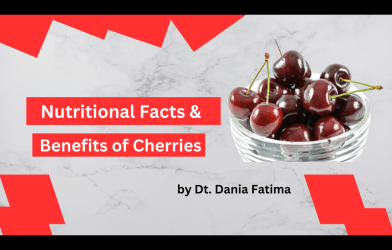Plums
9 Health Benefits of Plums for overall health. Plums are more than just a delicious fruit. They are packed with essential vitamins and minerals that contribute to your overall health. Let’s break down the nutritional facts and health benefits of incorporating plums into your diet.
Nutritional Facts of Plums
Here’s a detailed look at the nutritional content of plumsper one serving (about 66 grams or one medium-sized plum):
- Calories: 30
- Vitamin A: 5% of the recommended daily intake (RDI)
- Vitamin C: 10% of the RDI
- Vitamin E: 2% of the RDI
- Vitamin B Complexes:
- Vitamin B1 (Thiamine): 2% of the RDI
- Vitamin B2 (Riboflavin): 2% of the RDI
- Vitamin B3 (Niacin): 1% of the RDI
- Vitamin B6: 4% of the RDI
- Vitamin B9 (Folate): 1% of the RDI
- Magnesium: 2% of the RDI
- Potassium: 5% of the RDI
- Zinc: 1% of the RDI
- Calcium: 1% of the RDI
- Phosphorus: 2% of the RDI
Health Benefits of Plums
1. Regulate Blood Sugar Levels
Plums have a low glycemic index, meaning they release sugar slowly into the bloodstream, which helps in maintaining steady blood sugar levels. This makes them an excellent choice for people with diabetes or those looking to manage their blood sugar.
The fiber content in plums also plays a crucial role in blood sugar level regulation. Dietary fiber slows the rate at which carbohydrates are absorbed by the body, preventing rapid spikes in blood glucose levels. Additionally, plums contain specific compounds, such as phenols, which have been shown to enhance insulin sensitivity and improve overall blood sugar control. Consuming plums as part of a balanced diet can thus not only help manage existing blood sugar issues but also aid in preventing the onset of type 2 diabetes. By incorporating this nutrient-dense fruit into your meals or snacks, you can enjoy a tasty and natural way to support your metabolic health.
2. Improve Insulin Sensitivity
Consuming plums can help improve insulin sensitivity, reducing the risk of type 2 diabetes. The bioactive compounds found in plums have been shown to enhance insulin sensitivity in the body.
Consuming plums can help improve insulin sensitivity, reducing the risk of type 2 diabetes. The bioactive compounds found in plums have been shown to enhance insulin sensitivity in the body. Phenolic compounds, in particular, exhibit antioxidant properties that combat oxidative stress, a known factor in the development of insulin resistance. Additionally, the fiber content in plums aids in slowing down the digestion and absorption of carbohydrates, leading to more stable blood sugar levels and less insulin demand.
Moreover, plums contain sorbitol, a sugar alcohol that has a lesser impact on blood glucose levels compared to regular sugars. This helps in reducing the overall glycemic load of meals, contributing to better glycemic control. Regular consumption of plums can lead to sustained improvements in insulin sensitivity, which is crucial for the efficient management of metabolic health. Integrating plums into a balanced diet can thus serve as a natural approach to enhancing insulin function and preventing metabolic disorders.
3. Boost Heart Health
The high levels of potassium in plums can help regulate blood pressure and reduce the risk of stroke. Potassium helps balance the negative effects of sodium in your diet, thus contributing to heart health.
Plums are also rich in antioxidants, including anthocyanins and quercetin, which have anti-inflammatory properties that can protect the heart and blood vessels. These antioxidants help in reducing the buildup of oxidized cholesterol, a key factor in the development of atherosclerosis, thus lowering the risk of heart disease. Additionally, the soluble fiber found in plums helps to lower LDL (bad) cholesterol levels by binding with bile acids in the intestines and aiding in their excretion. This process forces the liver to use up more cholesterol to produce new bile acids, thereby reducing the amount of cholesterol circulating in the blood.
Furthermore, the vitamin C content in plums supports the production of collagen, a protein essential for maintaining the integrity of blood vessels. This ensures that the blood vessels remain flexible and resilient, preventing damage that can lead to cardiovascular issues. By incorporating plums into your diet, you can leverage these multiple pathways to bolster your heart health, making them a heart-friendly addition to your daily nutrition.
4. Enhance Menstrual Health
Plums contain essential vitamins and minerals that can help manage menstrual symptoms. Magnesium, in particular, is known for its ability to reduce menstrual cramps and promote relaxation.
Magnesium plays a key role in the management of menstrual symptoms by helping to relax smooth muscle tissues, which can alleviate the discomfort of cramps. It also influences the production of prostaglandins, lipid compounds that are linked to pain and inflammation during menstruation. By reducing excessive prostaglandin production, magnesium can lead to less severe menstrual pain.
Additionally, plums are a good source of iron, which is particularly beneficial for women during their menstrual cycle. The loss of blood during menstruation can lead to decreased iron levels, potentially causing fatigue and anemia. Consuming iron-rich foods like plums can help replenish iron stores, thereby mitigating these issues.
Plums also contain vitamin B6, which has been shown to help reduce symptoms of PMS, such as mood swings, irritability, and bloating. Vitamin B6 aids in the production of neurotransmitters like serotonin and dopamine, which regulate mood and emotional wellbeing.
Incorporating plums into your diet during the menstrual cycle can thus offer multiple benefits, from reducing cramp severity to combating anemia and stabilising mood fluctuations. This makes plums a valuable addition to the nutritional regimen of those seeking natural ways to enhance menstrual health.
5. Manage High Blood Pressure
The potassium content in plums helps to manage high blood pressure by balancing out the sodium levels in the body, thereby reducing strain on the cardiovascular system.
Potassium and its role in balancing sodium levels are crucial in managing high blood pressure, or hypertension. By aiding the excretion of sodium through urine, potassium helps reduce fluid retention and, in turn, decreases the volume of blood that the heart needs to pump. This process naturally lowers blood pressure levels. Excess sodium is a well-known contributor to elevated blood pressure since it causes the body to hold onto more water, increasing blood volume and placing additional strain on blood vessels and the heart.
Furthermore, the fiber content in plums can indirectly support blood pressure regulation by promoting overall cardiovascular health. A diet high in fiber has been linked to a reduced risk of developing hypertension, as it helps lower cholesterol levels and improve heart function. Additionally, the antioxidants found in plums, such as phenolic compounds and anthocyanins, combat oxidative stress and inflammation, which are contributing factors to high blood pressure. These antioxidants help maintain the elasticity and integrity of blood vessels, ensuring smooth blood flow and preventing the arterial stiffness that often accompanies hypertension.
Regular consumption of plums, therefore, contributes to a multifaceted approach to managing high blood pressure. By combining potassium’s direct effects with the broader cardiovascular benefits of fiber and antioxidants, plums can be an effective and natural part of a diet aimed at controlling hypertension and promoting heart health.
6. Improve Memory
Antioxidants in plums, such as Vitamin C and Vitamin E, help to reduce inflammation and oxidative stress, which can improve cognitive function and memory.
The polyphenols found in plums play a significant role in supporting brain health. These naturally occurring compounds have been shown to enhance cognitive function by promoting neuronal communication and reducing neuroinflammation. Chronic inflammation and oxidative stress are known to impair cognitive functions, including memory. Antioxidants in plums such as polyphenols help to neutralize free radicals, thereby protecting brain cells from potential damage.
Moreover, plums contain anthocyanins, which give the fruit its rich colour. Anthocyanins have been associated with improved memory and motor skills due to their ability to cross the blood-brain barrier and exert neuroprotective effects. These compounds can enhance synaptic plasticity, the ability of synapses to strengthen or weaken over time, which is vital for learning and memory formation.
B vitamins present in plums also contribute to brain health. Vitamin B6, for instance, aids in the production of neurotransmitters like serotonin and dopamine, which are crucial for mood regulation and cognitive functions. Vitamin B6 supports the synthesis of myelin, the protective sheath around nerves, which ensures efficient transmission of nerve impulses.
Incorporating plums into your diet can thus offer a natural way to enhance memory and cognitive function, making them a valuable addition for those seeking to maintain brain health and prevent cognitive decline.
7. Promote Healthy Skin
Plums are rich in antioxidants, including Vitamin A and Vitamin C, which help to protect the skin from damage, promote healing, and maintain a youthful appearance.
Vitamin A in plums plays a pivotal role in skin health by aiding in the production of new skin cells. This vitamin helps expedite the healing process of wounds, reduces the appearance of fine lines and wrinkles, and can even alleviate acne by regulating oil production. Moreover, Vitamin C is essential for collagen synthesis, a protein that maintains skin’s elasticity and firmness. Regular consumption of Vitamin C can help in the reduction of skin sagging and improve overall texture and tone.
Additionally, the high antioxidant content in plums combats free radicals, which are unstable molecules that can cause skin damage and accelerate aging. By neutralizing these free radicals, antioxidants help protect the skin from environmental stressors like pollution and ultraviolet (UV) radiation. This protection results in a diminished appearance of dark spots, hyperpigmentation, and blemishes.
Plums also have hydrating properties due to their high water content, which helps keep the skin moisturized and supple. Their natural acids gently exfoliate dead skin cells, revealing a fresher and more radiant layer of skin underneath. The anti-inflammatory properties of plums further help in calming irritated and sensitive skin, making them beneficial for individuals with conditions like eczema and psoriasis.
Incorporating plums into your diet or skincare regimen can, therefore, contribute significantly to achieving healthy, vibrant skin. Their comprehensive range of benefits makes them a powerful ally in maintaining a youthful appearance and overall skin wellness.
8. Combat Anemia
Plums are a source of iron and Vitamin C, which can help to combat anemia. Vitamin C enhances the absorption of iron from plant-based sources, thereby improving blood health.
write more about how plums combat anemia
Iron is an essential mineral for the production of hemoglobin, a protein in red blood cells that transports oxygen throughout the body. Plums provide a plant-based source of iron, which can be particularly beneficial for individuals following a vegetarian or vegan diet who might otherwise find it challenging to meet their iron needs. Consuming plums can contribute to maintaining adequate hemoglobin levels, thereby preventing the fatigue and weakness commonly associated with anemia.
Moreover, the presence of Vitamin C in plums plays a crucial role in enhancing the absorption of non-heme iron (the type of iron found in plant foods) in the digestive tract. This synergistic relationship between Vitamin C and iron is vital since non-heme iron is generally less readily absorbed than heme iron, which is found in animal products. By improving iron absorption, plums help ensure that more iron is available for the production of red blood cells, aiding in the prevention and management of anemia.
Additionally, plums contain other supportive nutrients like Vitamin B6 and folate, which are important for red blood cell formation and overall blood health. Vitamin B6 plays a role in the production of hemoglobin, while folate is essential for producing DNA and RNA, which are necessary for the formation of new blood cells. A deficiency in either of these vitamins can lead to anemia, underscoring the importance of a nutrient-rich diet that includes plums.
Regular consumption of plums can contribute significantly to overcoming nutritional deficiencies that lead to anemia. By offering a range of nutrients that support blood health, plums provide a natural and effective way to combat anemia and enhance overall vitality.
9. Enhance Digestive Health
Plums are a good source of dietary fiber, which aids in digestion, prevents constipation, and promotes a healthy gut microbiome.
Dietary fiber is a crucial component of plums that significantly enhances digestive health. Fiber aids in promoting regular bowel movements by adding bulk to the stool, which makes it easier to pass and helps prevent constipation. There are two types of fiber found in plums: soluble and insoluble. Soluble fiber dissolves in water to form a gel-like substance that acts to slow digestion, ensuring that nutrients are adequately absorbed. Insoluble fiber, on the other hand, does not dissolve in water but helps move material through the digestive system, further preventing constipation.
Moreover, plums contain sorbitol, a natural sugar alcohol with a mild laxative effect that can help alleviate constipation and promote regular bowel habits. This compound draws water into the colon, aiding in softer, easier-to-pass stools, which can be beneficial for those struggling with irregular bowel movements.
In addition to aiding in regularity, the fiber in plums acts as a prebiotic, feeding the beneficial bacteria in the gut. A diverse and healthy gut microbiome is essential for overall digestive health, as it helps in the breakdown of food, absorption of nutrients, and fortification of the gut barrier. By fostering a healthy environment for gut bacteria, plums can contribute to a more balanced and resilient digestive system.
Regular consumption of plums can thus lead to improved digestive health, reduced risk of gastrointestinal disorders, and enhanced overall well-being. The natural fibers and compounds in plums make them an excellent dietary choice for maintaining a healthy and functional digestive tract.
Risks of Plums
While plums are packed with nutrients, there are a few considerations to keep in mind:
- Allergies: Some individuals may be allergic to plums. If you experience any adverse reactions, discontinue consumption and consult a healthcare professional.
- Digestive Issues: Overconsumption of plums can lead to digestive discomfort or diarrhea due to their high fiber content.
How to Use Plums
Plums are versatile and can be incorporated into your diet in various ways:
- Fresh: Enjoy them whole as a healthy snack.
- Smoothies: Add them to your morning smoothies for a nutrient boost.
- Salads: Slice them into your salads for a burst of flavor and color.
- Baking: Use them in baking recipes like plum tarts or cakes.
- Sauces: Make homemade plum sauce to accompany savory dishes.
Right time to take Plums
While plums can be enjoyed any time of the day, here are a few suggestions:
- Morning: A great addition to your breakfast, providing a natural energy boost.
- Pre-Workout: The natural sugars in plums can provide quick energy before a workout.
- Afternoon Snack: A healthy option to curb midday hunger pangs
Conclusion
Incorporating plums into your diet can offer numerous health benefits, from improved digestion to enhanced heart health. Their rich nutritional profile makes them a valuable addition to any diet. Start enjoying the benefits of plums today and take a step towards a healthier you!


















